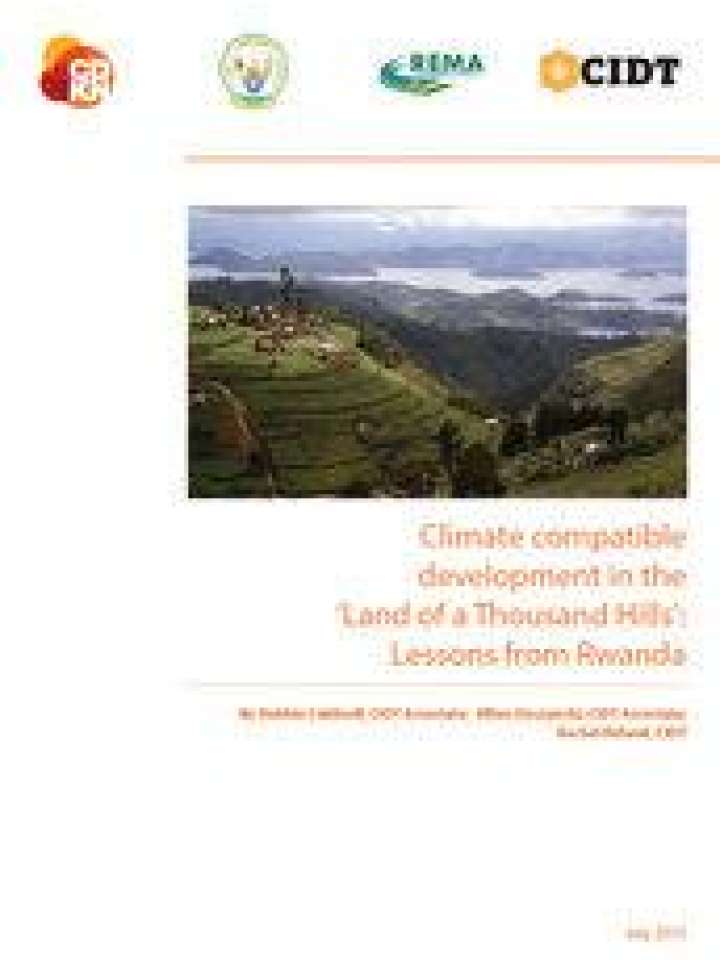Climate compatible development in the ‘Land of a Thousand Hills’: Lessons from Rwanda
This working paper documents Rwanda’s lessons related to national-level climate change planning, captured as part of the “Lesson Learning from National Climate Compatible Development (CCD) Planning” study. The study aimed to capture and share institutional memory and experiences related to climate compatible development and reflect on recommendations to support future decisions.
Other decision-makers and development practitioners can learn from the Rwandan experience, which includes the following lessons (p. 8):
- Backing of environment and climate legislation creates a critical political enabling environment for the development and implementation of progressive institutional arrangements, policies and strategies for climate compatible development.
- Strong alliances among ministries of finance and economic planning and environment ministries and agencies improves mainstreaming of climate considerations into planning and budgeting, as well as the establishment of national climate funds.
- Well-publicised, high-impact demonstration projects provide powerful examples for scaling up tangible climate compatible development activities locally and nationally.
- Integrating climate action into the economy requires a coordinated and systematic approach to capacity building, planning and resource mobilisation both within and across sectors.
- Effective mechanisms are needed to ensure good communication and flow of information on climate issues between national-level technical ministries/agencies and institutions and organisations at district and sub-district levels.
- Capacity for planning, budgeting, mainstreaming and developing proposals around climate compatible development at national and subnational levels is a persistent challenge, and requires targeted approaches.
Explore further
